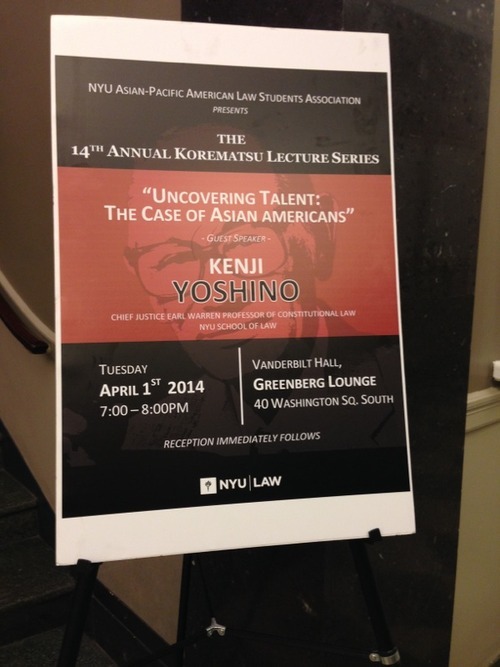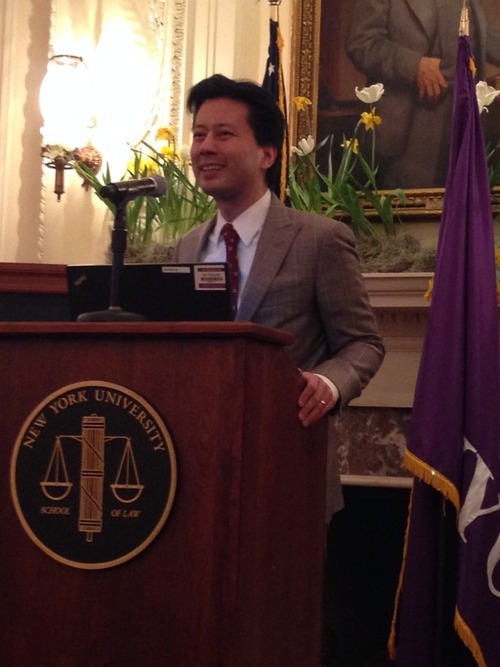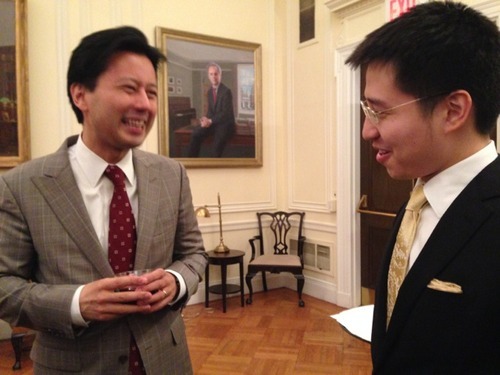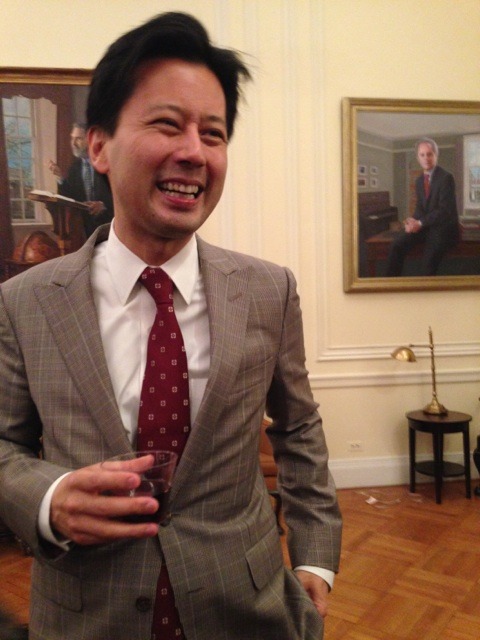On September 8th, Seton Hall Law School hosted a webinar entitled “Asian Americans at a Crossroads: COVID-19, #BLM, Discrimination, and Allyship,” which AABANY co-sponsored. The event, moderated by Professor Marina Lao, was a virtual conversation with Professor Frank H. Wu, President at Queens College, CUNY, who discussed the problems facing the Asian and Asian-American communities, the importance of allyship and building bridges across communities of color, and the history that surrounds both.
Professor Wu began the discussion by talking about how he got interested in studying Asian American history in college, when he wanted to write a paper on Asian American issues and civil rights and found not a single book written on the subject. He then realized that United States racial history was taught in a black and white paradigm: it treated everyone as falling into these two supposedly “opposite” categories. In doing so, history has taught Asian Americans that they have three options: they must aspire to be “honorary white people,” fall into the supposedly “lesser” category as people of color, or accept that they will never fit into the body politic.
He then recounted his upbringing in Detroit, where people assumed that he belonged halfway around the world and bullied him with racist slurs. They ingrained in him a perpetual foreigner syndrome, which has recently become more common and intensified with the association of all Asians with COVID-19. Only after the murder of Vincent Chin did Professor Wu realize that these weren’t just harmless jokes. In 1982 Detroit, Chin, a working class Chinese citizen, was harassed with racial slurs and bludgeoned to death by two automobile workers; they saw Chin as a foreigner, as someone who stole their jobs and thus must be punished. The killers got a fine and probation for three years, which Professor Wu revisited in 2012 when he co-wrote the AABANY Trial Reenactment of the Murder of Vincent Chin.
During this horrific incident in 1982, Professor Wu first learned the importance of bridge building and forming coalitions. He realized that in America, all Asians have to come together to form one Asian-American culture in order to emphasize that they are Americans. He then realized he needed to better understand the Black struggle. He followed the path of W.E.B. DuBois, who situated the fight for Black liberation in the importance of cooperation and coalition.
He concluded by discussing the importance of Asian Americans supporting the Black Lives Matter movement. He discussed the dangers of the model minority myth, and how it was designed to enforce anti-Black/Latinx racism. He explained how in this moment, Asian Americans have to try to understand other people’s sufferings, which can be more severe than ours. Asian Americans are at a crossroads: do we aspire to the silent norms and enforce them? Or do we proudly affirm our status as people of color and stand in solidarity and fight for the liberation of other races? The lives of Asian Americans can only be truly secure and protected when people who look different also feel that their place is secure too.
Professor Wu’s conversation highlights some of the many unique changes and challenges that Asian Americans are experiencing this year. Now more than ever, it is incredibly important to not only understand Asian American history and its ties to Black, Latinx, Indigenous, and other racial and ethnic histories, but also — and more importantly — learn from those triumphs and mistakes of the past. In order to create a history we are proud of, we must look behind us and strive forward, together.
Thank you to the Asian Pacific American Law Students Association (APALSA) at Seton Hall Law School for hosting and organizing the event. To view the full recording of the conversation on YouTube, click the link above.






